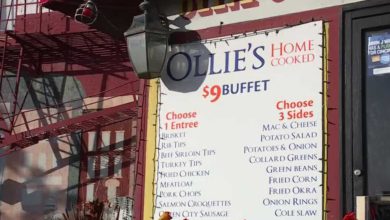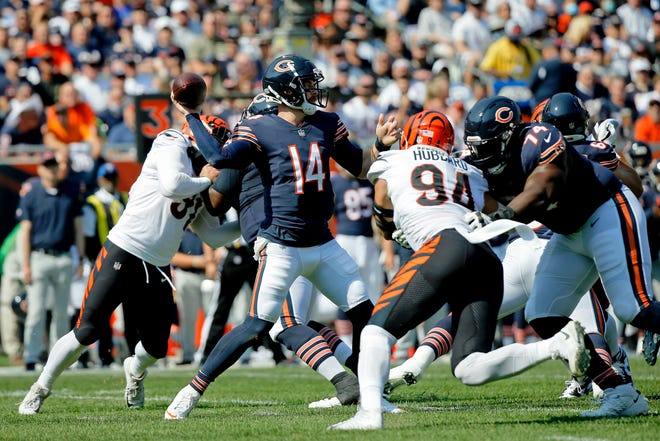
Any notion that sports and politics do not intersect was largely imploded in 2020. Consider 2021 the year its biggest entities face the logistics of that head on.
Major League Baseball’s decision to yank the July 13 All-Star Game from Atlanta was undeniably political, coming as it did in the wake of Georgia’s adoption of a restrictive and racially unjust voting law.
And the decision on where the game goes now will be all the more politically loaded – though that doesn’t mean it is without opportunity.
Just as the decision to move the game was done, as commissioner Rob Manfred noted, after conversations with current and former players, franchises and the burgeoning Players’ Alliance, so, too, should a decision on the new site.
MLB 2021:Champion Dodgers have MLB's highest payroll
LINDOR:Mets' new superstar embraces the spotlight
MLB’s partnership with the Players’ Alliance was perhaps its most notable action during a year the league was initially caught flat-footed by nationwide protests over the police killing of George Floyd. While still not the “social institution” former commissioner Bud Selig hoped to be, the league was supportive in efforts by Black players to sit out a game after the police shooting of Jacob Blake in Kenosha, Wisconsin.
The emergence of the Players’ Alliance kept Black voices in the game even if they’re no longer on the field, a crucial coalition at a time African-American players comprise just 8% of active players. In September, MLB and the MLB Players’ Association donated $10 million to the Players’ Alliance to further Black representation in baseball; MLB added another $1 million donation of equipment and supplies to help fuel the Alliance’s winter tour of disadvantaged neighborhoods as the COVID-19 pandemic surged.
That spirit of collaboration will hopefully prevail in making a thoughtful decision for All-Star Game 2021, Take II. A few suggestions:
Milwaukee
In a year meant to honor Hank Aaron, who passed away in January, the only place potentially on par with Atlanta is Aaron’s first and last baseball home, where he played 12 seasons before the Braves departed for Atlanta, and a final season with Selig’s Brewers.
And Wisconsin will for the foreseeable future be a crucial state politically, where bad-faith political actors may always seek to curb voting rights and poll access.
It may seem folly to move a jewel event due to voter suppression and place it in a state where a handful of state lawmakers have circulated at least 10 bills that aim to make voting more difficult. At the same time, placing the game there now could appropriately amplify these issues, particularly if players are given a platform to discuss them.

Minneapolis
There are no bonus points for being the first entity to release a heavily-workshopped statement on a sensitive topic. Yet for what it’s worth, in the grim hours and days after Floyd’s death, it was the Twins who weighed in first on the killing, two days before any other club and six days before the league itself did the same. They were also one of just 12 teams who dared mention Floyd by name, the other 18 dancing away from the subject to bathe in the vinaigrette of a word salad.
Twins manager Rocco Baldelli beat his own team to the punch by a day, tweeting that Floyd “should be breathing right now. We have a lot of progress to make. A lot. Remember his name. Remember what happened.”
Those words resonate even more now; nearly a year removed, it’s easy to forget the killing of Floyd in broad daylight was the impetus for so much that changed in the months since.
The trial of Derek Chauvin has shown how traumatic the killing was for Blacks in the Twin Cities. His conviction won’t ease that trauma, and his acquittal would only open the wounds further. An exhibition baseball game won’t salve those wounds, but it would serve as a reminder to the sport why all those “difficult conversations” have been happening.
Chicago
And no, we’re not talking about Wrigley Field.
Instead, MLB could look to the South Side, where Guaranteed Rate Field looks a little shinier after renovations and features perhaps the best food selection of any park.
More significantly, there may not be a better place to focus on MLB’s hopes of growing and diversifying the game.
With community works a significant part of any All-Star Game, MLB couldn’t do much better than partnering with the Lost Boyz, a group committed to “provide sports-based youth development to help boys and girls in Chicago’s under-resourced neighborhoods develop confidence, resilience, and life skills.”
Those aforementioned bad actors often ask, “What about Chicago?” when gun violence or police brutality are mentioned. It is a disingenuous concern regarding a complex, multi-layered situation. It would be a helpful and powerful gesture for the league and its players to amplify those doing the work on the ground.
Also, Tim Anderson would make for an excellent game ambassador.

Tampa Bay
OK, there’s probably no way this would fly.
Yet St. Petersburg’s much-maligned Tropicana Field has never hosted an All-Star Game, and it may never: Efforts by the Rays and political officials on both sides of the bay to produce a new stadium have never gained traction, and the club may be ticketed for relocation by 2027.
It would be a diss to the area’s rich baseball culture and Rays fans to leave town without the game’s jewel event visiting. Hey, it’s not their fault Tropicana Field is a pain to access and that the region was given a franchise without a longer-term stadium solution in place.
And there would be no greater area to highlight the gains baseball must make than St. Pete and nearby Hillsborough County, which produced countless Black stars, Dwight Gooden, Gary Sheffield and Fred McGriff among them. Since, the game at large has seen a huge drop in Black participation. Including past and present area stars, such as the aforementioned trio and New York Mets slugger Pete Alonso, would highlight the ar of Tampa baseball while keeping an eye on the future.
The game could also provide a platform for veteran Ian Desmond, who has opted out of each of the past two seasons to support youth baseball in nearby Sarasota and better contextualize the events of the past year for himself and his children.
Baltimore
Seems like yesterday the crowd at brand new Camden Yards was shouting down Cito Gaston for failing to bring Mike Mussina into the 1993 Midsummer Classic. Well, the game hasn’t been back to Charm City since, even as four other cities – Pittsburgh, Atlanta, Philadelphia and Cleveland – have received multiple All-Star Games.
Meanwhile, Camden Yards has aged beautifully, but it and Baltimore could use some love. Attendance fell drastically at Oriole Park – from 2.4 million in 2014 to 1.3 million in 2019 – for a variety of factors, from franchise obsolescence to area economic factors, diminishing population and perceptions of security issues after protests in the wake of Freddie Gray’s death in police custody in 2015.
Now, the Orioles are batting away queries that they may move, which team ownership insists won’t happen.
The Orioles have chosen their current path of Lose A Lot before hopefully Winning Big, but that’s not the only reason attendance has ebbed. An All-Star Game can provide a jolt of interest the local team cannot, while also sprinkling the additional benefits of the game into a community disproportionately impacted by any calamitous event – be it COVID-19, economic woes or injustices of the sort the league has hoped to fight in the past year.









